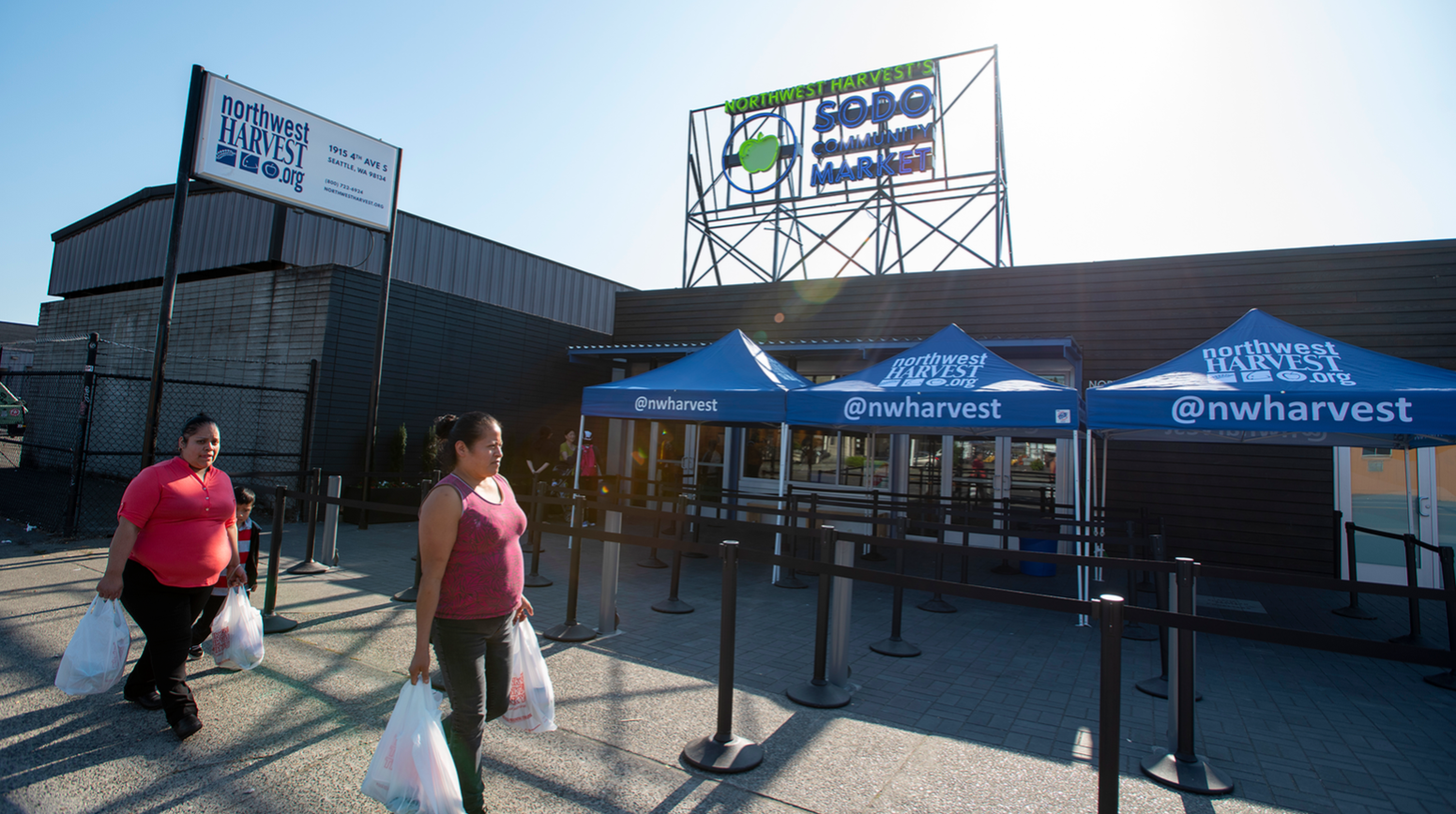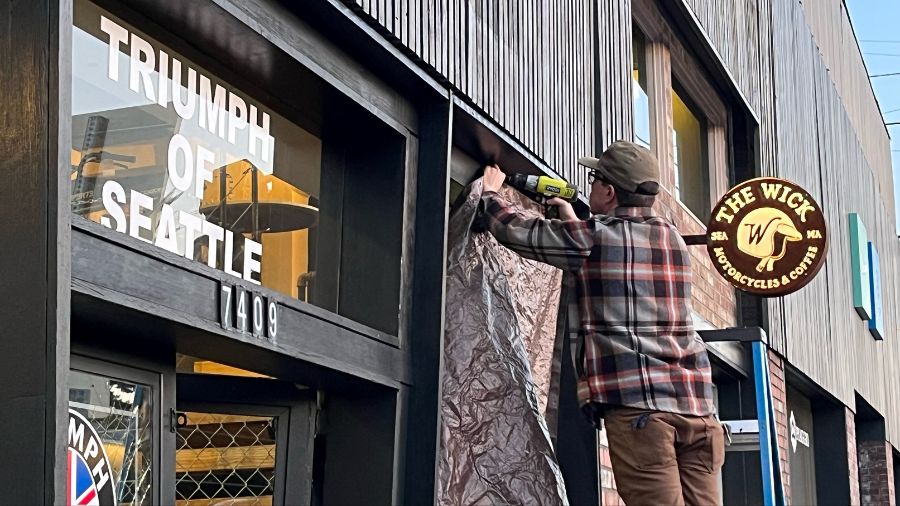Puget Sound hunger issues continue to grow, calls for help increasing
Nov 7, 2022, 3:55 PM

People gather at the Northwest Harvest food bank in SODO. (Photo courtesy Northwest Harvest)
(Photo courtesy Northwest Harvest)
Inflation is bad. The cold weather is moving in. It’s getting darker. Tough times, it seems, are everywhere you look. For the hungry, it’s even more difficult.
Food banks across the Puget Sound and the nation are having trouble keeping up with the demand.
“Food banks are reporting deep declines in donated food,” Thomas Reynolds, CEO of Northwest Harvest, said.
Northwest Harvest supports a statewide network of more than 300 food banks, meal programs, and schools in need.
“It’s really a very serious time because we have both increased number of households seeking food resources at food banks and pantries and much less food to provide,” Reynolds told KIRO Newsradio.
Year-to-year, the major co-ops are seeing declines in just about everything.
“Significantly increased food prices and higher cost of living are hitting while formalized emergency responses to the pandemic retire,” Ryan Scott, Chief Development Officer for Food Lifeline, said. “This has created a perfect storm where families are being stretched at both ends, being forced to make impossible choices between food and rent or food and school.”
Food Lifeline said its strategic goal is to feed people who “are experiencing hunger today and solve the issue of hunger for tomorrow.”
East King County food banks receive 40,000-pound food donation from church in Utah
“Right now in Washington state, members of food-insecure households are increasing rapidly and we’ve seen that since February and March of this year,” Reynolds explained.
Food Lifeline said it is dangerously low on our food supplies. During a typical year, it has 4-5 million pounds of deliverable food this time of year. It is currently hovering around 1 million.
“With more than 1 million people facing food insecurity in western Washington right now, we are seeing our network stretched in the same way we did at the peak of the pandemic, with huge lines and not enough food to meet the need,” Scott said.
Reynolds pointed out that government programs ended in January and February.
“That also coincided with a spike in inflation. Also, the global food supply shortage IS affected mostly by conflict and climate change,” Reynolds said.
The problem tends to get highlighted over the holidays, but the food-insecurity issue is growing rapidly and more urgent this year.
“As families are coming together with each other, if they also think about neighbors next door and in the next community over and offer some resources to help other families celebrate the holidays, it’s a powerful way to build community,” Reynolds encouraged.
Donations can be made to Food Lifeline or Northwest Harvest.













